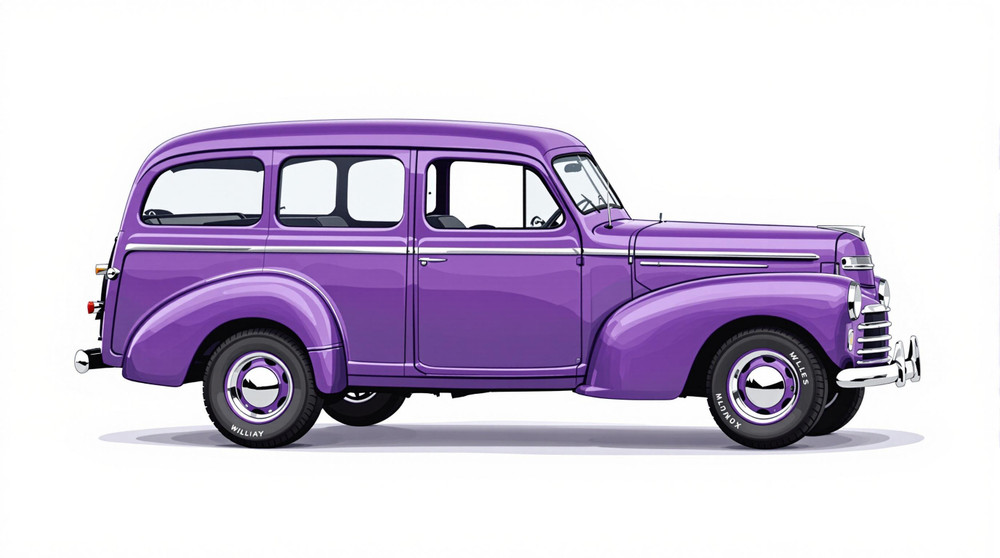Image of 1948 Willys Station Wagon, Note: These illustrations use artistic license and may differ from actual historical models.
Performance Metrics
Fundamental Metrics
Emotional Appeal
MMP Rating
| Engine Specifications | |
|---|---|
| Engine: | L-134 "Go Devil" I4 |
| Displacement: | 134 cu in (2.2 L) |
| Horsepower: | 60 hp at 4000 rpm |
| Torque: | 105 lb-ft at 2000 rpm |
| Compression Ratio: | 6.48:1 |
| Ignition System: | Battery and coil |
| Cooling System: | Liquid-cooled |
| Performance Specifications | |
| 0-60 Time: | Information not available |
| 1/4 Mile Time: | Information not available |
| Top Speed: | 65 mph |
| Transmission and Drive | |
| Drive Type: | Rear-wheel drive (4x4 optional) |
| Transmission Type: | 3-speed manual |
| Fuel and Efficiency | |
| Fuel System Type: | Carburetor |
| MPG: | 15-20 mpg |
| Dimensions and Brakes | |
| Brakes: | Hydraulic drum brakes |
| Wheelbase: | 104.5 in |
| Weight: | 3,000 lbs |
Note: Specifications for classic cars are given to the best of our ability, considering the limited and variant data available.
The 1948 Willys Station Wagon: Pioneering Utility with a Touch of Elegance
With the emergence of the 1948 Willys Station Wagon, the automotive landscape witnessed the birth of an icon that would redefine versatility and durability. Originating from Willys-Overland Motors, a company renowned for its wartime Jeep production, this station wagon was a trailblazer in post-war America, offering families and businesses alike a vehicle that could handle both urban and rural demands with ease. A notable moment in its history is its claim to fame as the first all-steel station wagon produced in large numbers, marking a departure from the wood-bodied 'woodie' wagons of its time.
Design and Innovation
The exterior styling of the 1948 Willys Station Wagon was both functional and forward-thinking. Its boxy silhouette exuded strength, while the flat, vertical grille and rounded fenders echoed the ruggedness of its Jeep lineage. Inside, passengers were greeted with a no-nonsense interior that focused on utility over luxury, yet the quality of materials reflected a post-war optimism. The dashboard was simple, with gauges and controls within easy reach. Notable technological features included the advanced Planadyne front suspension which was quite innovative for its time. Color options ranged from muted earth tones to more vibrant hues, with Seacrest Green being a popular choice among buyers. The most iconic body style was undoubtedly the two-door variant, which offered various seating configurations to accommodate both passengers and cargo.
Historical Significance
The 1948 Willys Station Wagon set itself apart by being one of the first vehicles to successfully blend passenger car comfort with the utility of a light truck. Its impact on automotive design was profound, paving the way for future SUVs and family-oriented vehicles. The station wagon's all-steel construction not only improved safety but also reduced production costs and maintenance issues associated with wood-bodied wagons.
Performance and Handling
Underneath the hood lay an engine capable of modest performance figures by today's standards but respectable for its era. The standard "Go Devil" L-head engine allowed for a top speed adequate for leisurely cruises through town or country roads. Acceleration from 0-60 mph was not a sprint but rather a steady climb, reflecting this vehicle's utilitarian nature. On various driving conditions, drivers appreciated its predictability and sturdy handling. The driving experience was characterized by a distinctive engine hum and a ride that felt connected to the road, offering feedback with every turn of the wheel.
Ownership Experience
The 1948 Willys Station Wagon found its niche as a multi-purpose vehicle adept as a daily driver, an off-road adventurer, or even as an eye-catching show car. Maintenance was relatively straightforward due to its mechanical simplicity and shared parts with other Willys models. Reliability was one of its strong suits; however, like any vintage vehicle, it required regular care to keep it running smoothly.
Fun Facts
Did you know that some Willys Station Wagons were equipped with four-wheel drive years before it became common in passenger vehicles? This feature made them particularly popular in regions with challenging terrain. While not known for setting speed records, these wagons have held their own in endurance and utility. Criticisms often centered around their modest power output and no-frills interior compared to more luxurious contemporaries.
Collector's Information
Today, the 1948 Willys Station Wagon holds a special place in collector circles due to its historical significance and charm. With production numbers estimated in tens of thousands during its run, they are relatively rare finds in pristine condition. Values can vary widely based on factors such as originality, condition, and historical provenance; however, well-preserved examples can fetch anywhere from $20,000 to $50,000 or more depending on market trends which currently show appreciation for authentic restorations and well-maintained originals.
Conclusion
The 1948 Willys Station Wagon remains an emblematic figure in automotive history—a testament to innovation during a transformative period in America. Its legacy endures through enthusiasts who cherish its blend of simplicity and capability. As we look back on this pioneering vehicle, we are reminded that true elegance often lies in utility shaped by necessity—a principle that continues to influence car design to this day.
1948 Willys Station Wagon Catalog of Parts
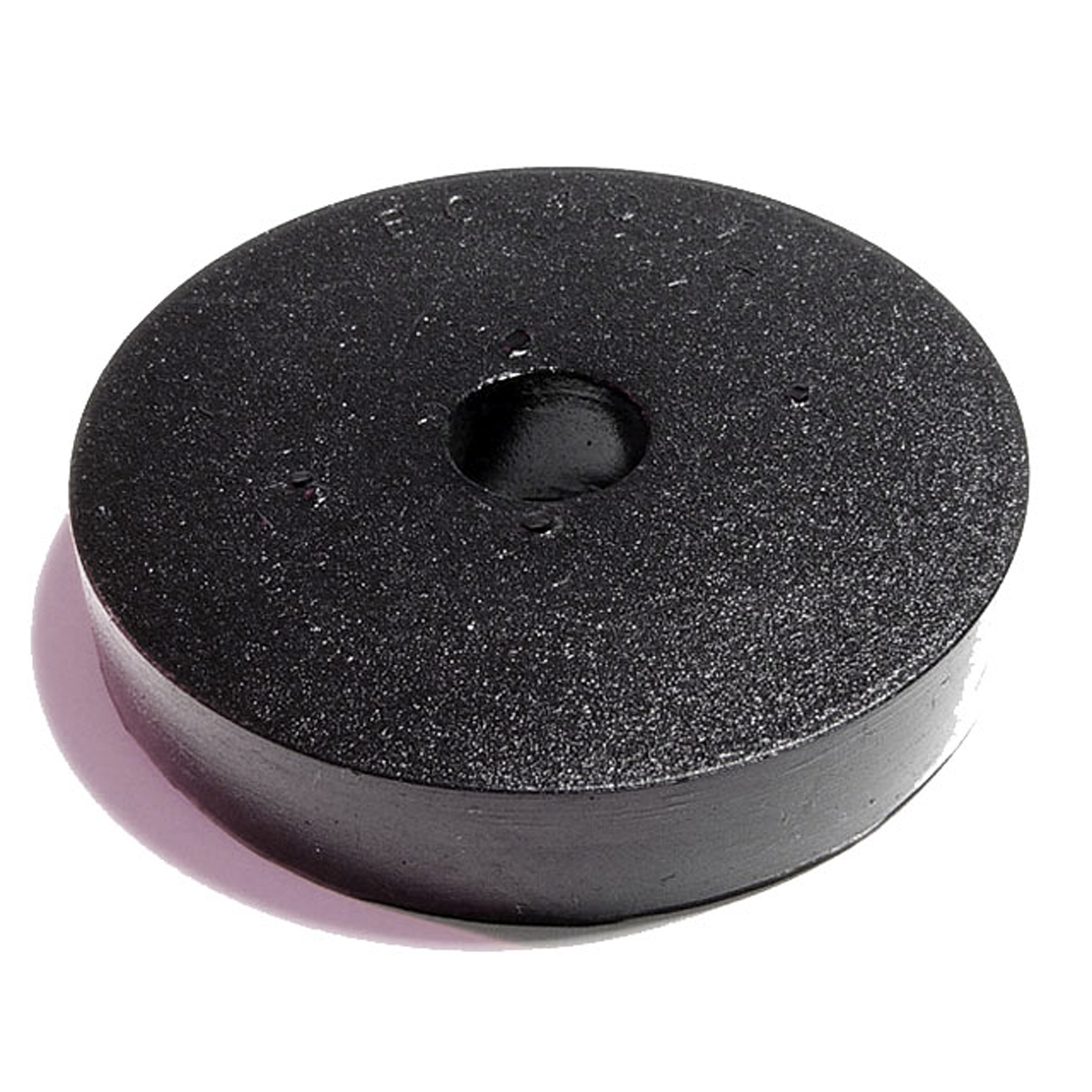 1948 Willys Station Wagon Body Mount Cushion. 1-15/16" O.D., 3/8" I.D., 3/8" Thick-BC 40-ABody Mount Cushion. 1-15/16" O.D., 3/8" I.D., 3/8" Thick. Each
1948 Willys Station Wagon Body Mount Cushion. 1-15/16" O.D., 3/8" I.D., 3/8" Thick-BC 40-ABody Mount Cushion. 1-15/16" O.D., 3/8" I.D., 3/8" Thick. Each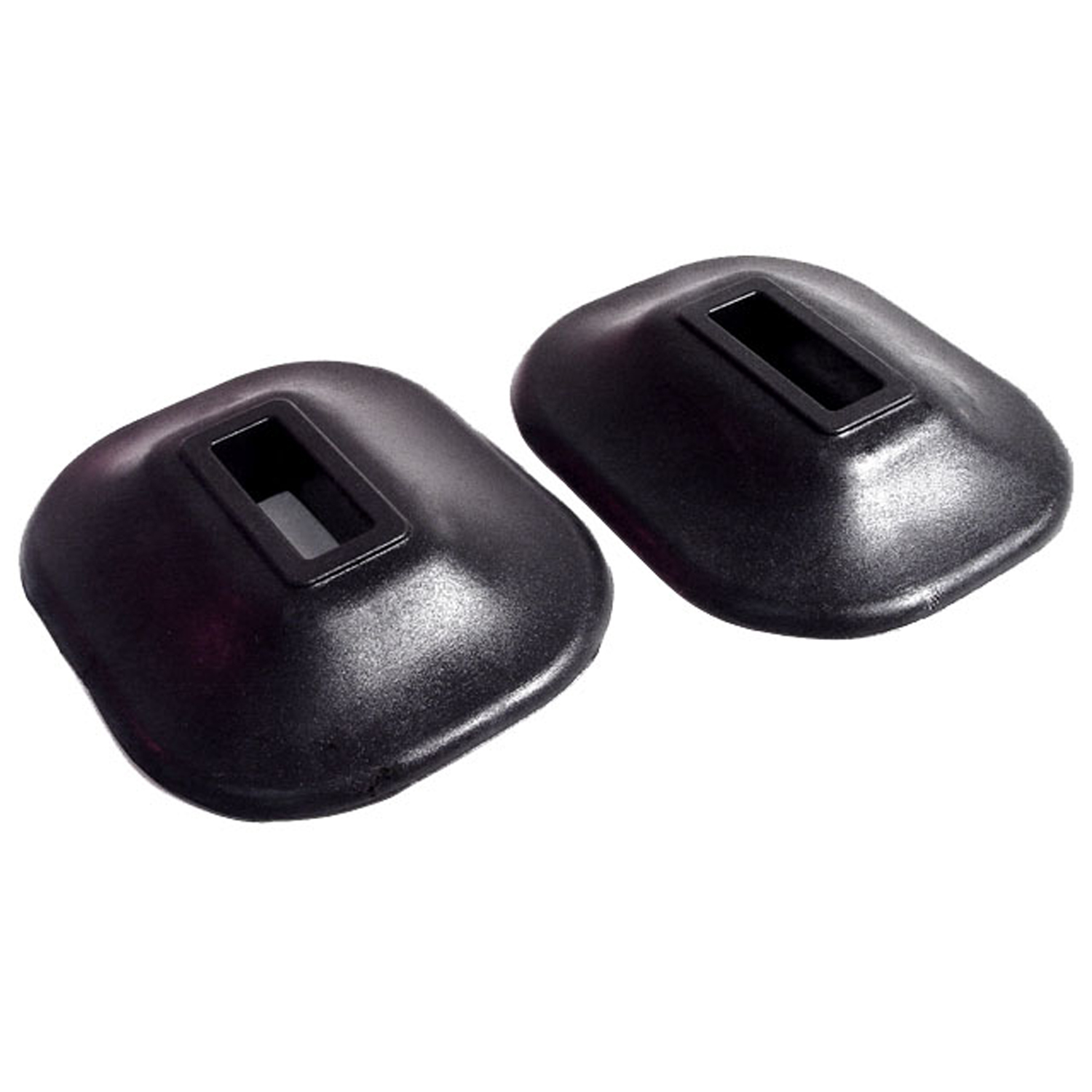 1948 Willys Station Wagon Front and Rear Bumper Arm Grommets-BG 62Front and Rear Bumper Arm Grommets. 3-1/8" wide X 3-7/8" long, with 1-3/8" long inner slot. Pair
1948 Willys Station Wagon Front and Rear Bumper Arm Grommets-BG 62Front and Rear Bumper Arm Grommets. 3-1/8" wide X 3-7/8" long, with 1-3/8" long inner slot. Pair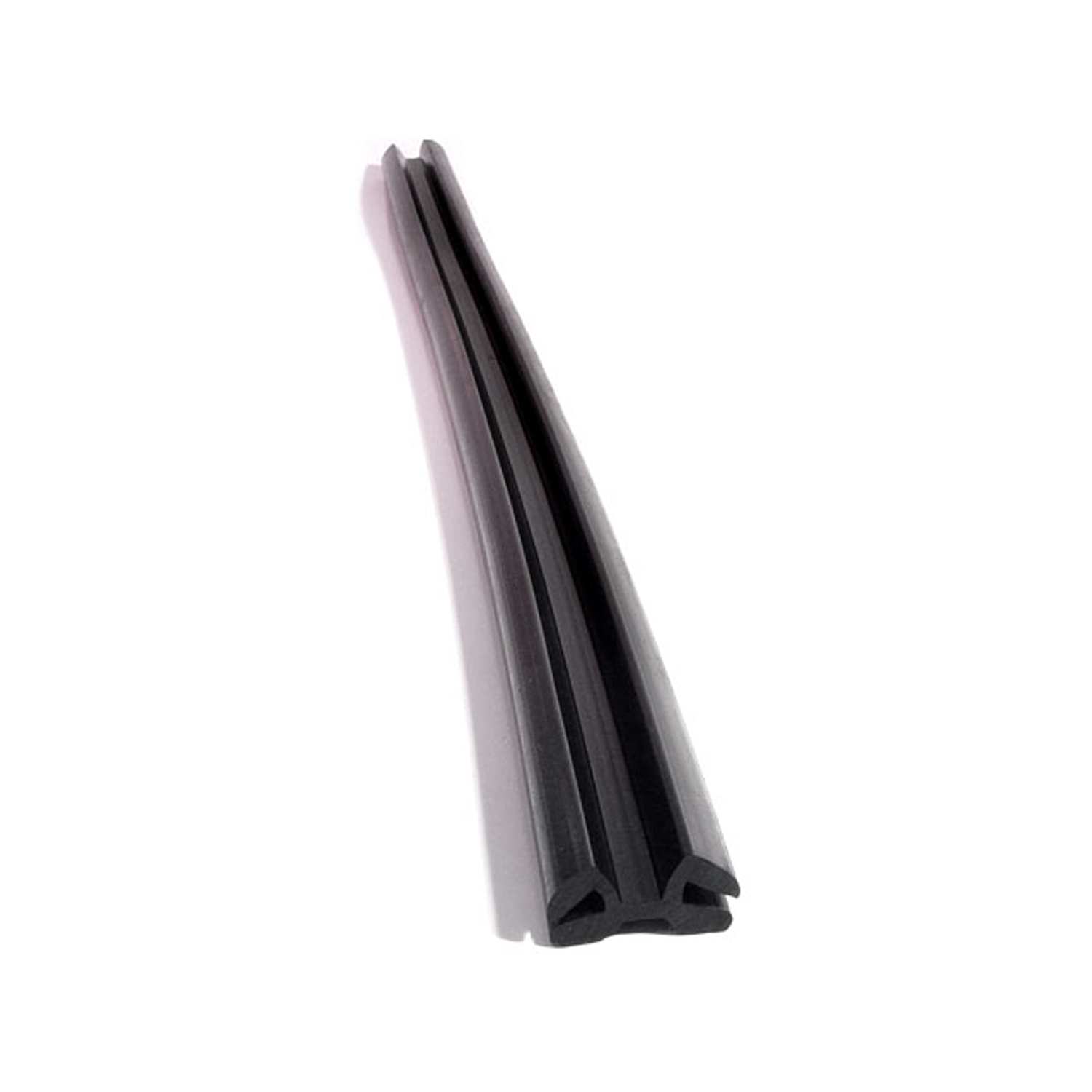 1948 Willys Station Wagon Center Division Bar Seal. 20" piece, to be cut to length-DP 40Center Division Bar Seal. 20" piece, to be cut to length. Each
1948 Willys Station Wagon Center Division Bar Seal. 20" piece, to be cut to length-DP 40Center Division Bar Seal. 20" piece, to be cut to length. Each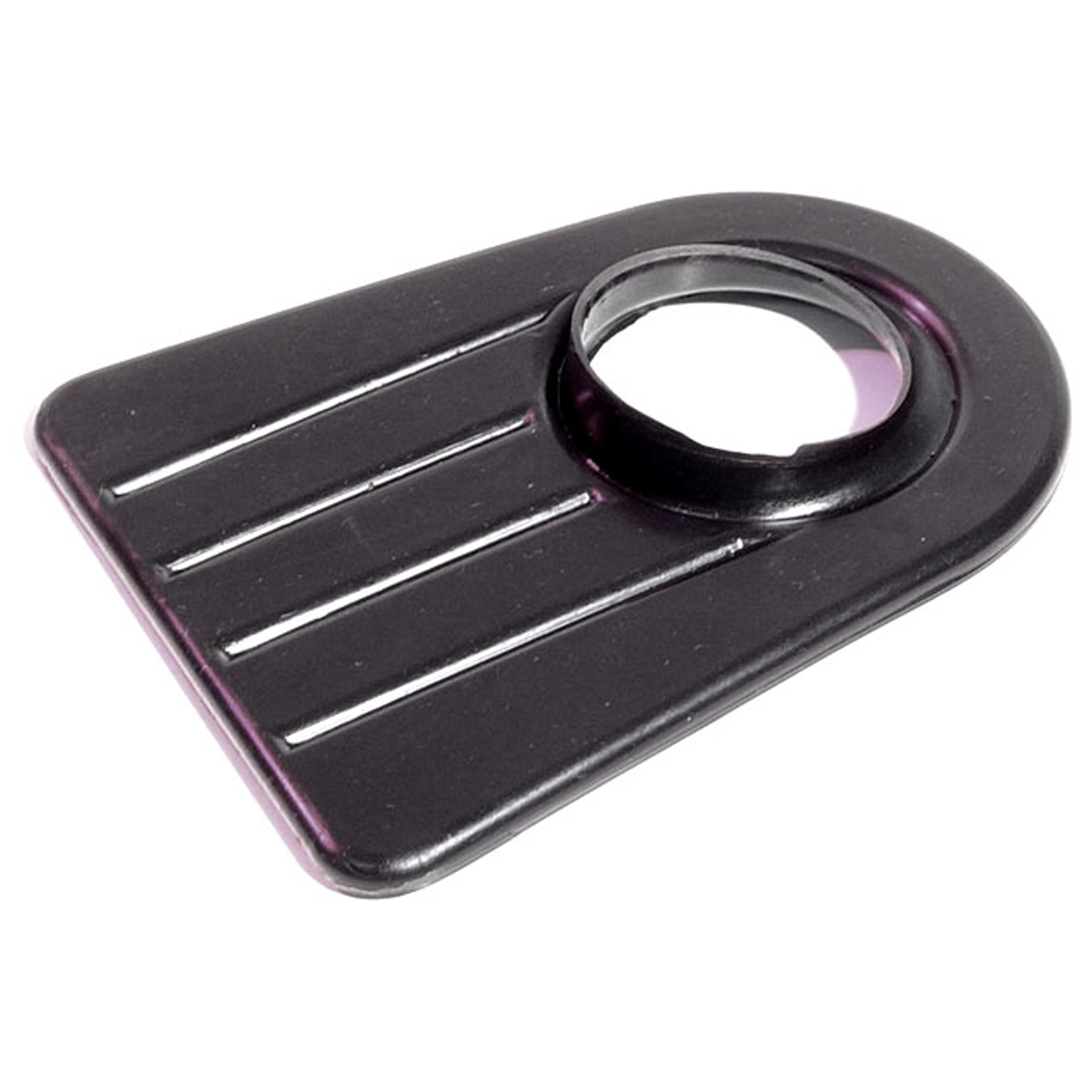 1948 Willys Station Wagon Gas Filler Grommet. 2-1/8" I.D., 6-3/8" length. Each-GF 29-AGas Filler Grommet. 2-1/8" I.D., 6-3/8" length. Each
1948 Willys Station Wagon Gas Filler Grommet. 2-1/8" I.D., 6-3/8" length. Each-GF 29-AGas Filler Grommet. 2-1/8" I.D., 6-3/8" length. Each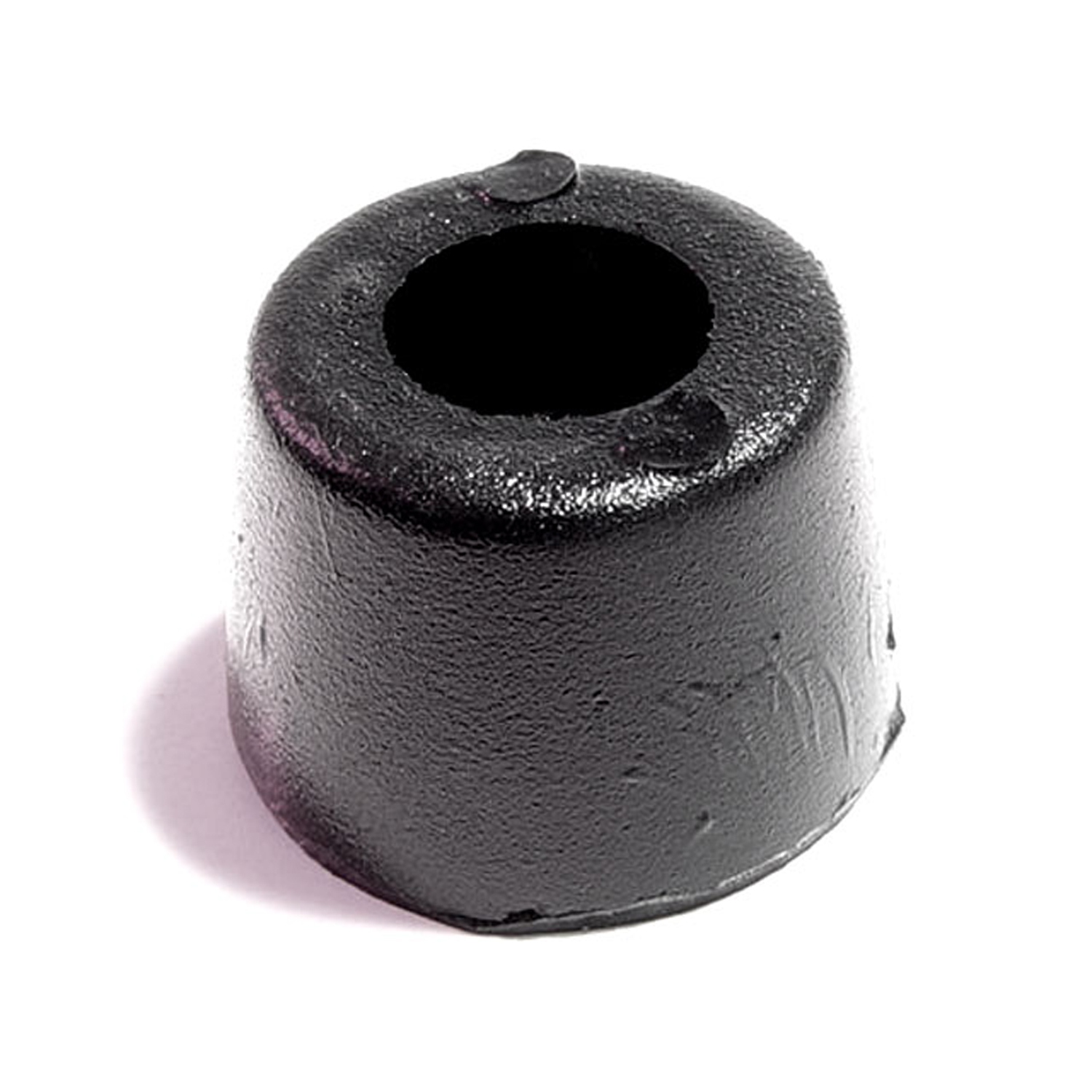 1948 Willys Station Wagon Hood Side Bumper. Two used per car. Each-HF 31Hood Side Bumper. Two used per car. Each
1948 Willys Station Wagon Hood Side Bumper. Two used per car. Each-HF 31Hood Side Bumper. Two used per car. Each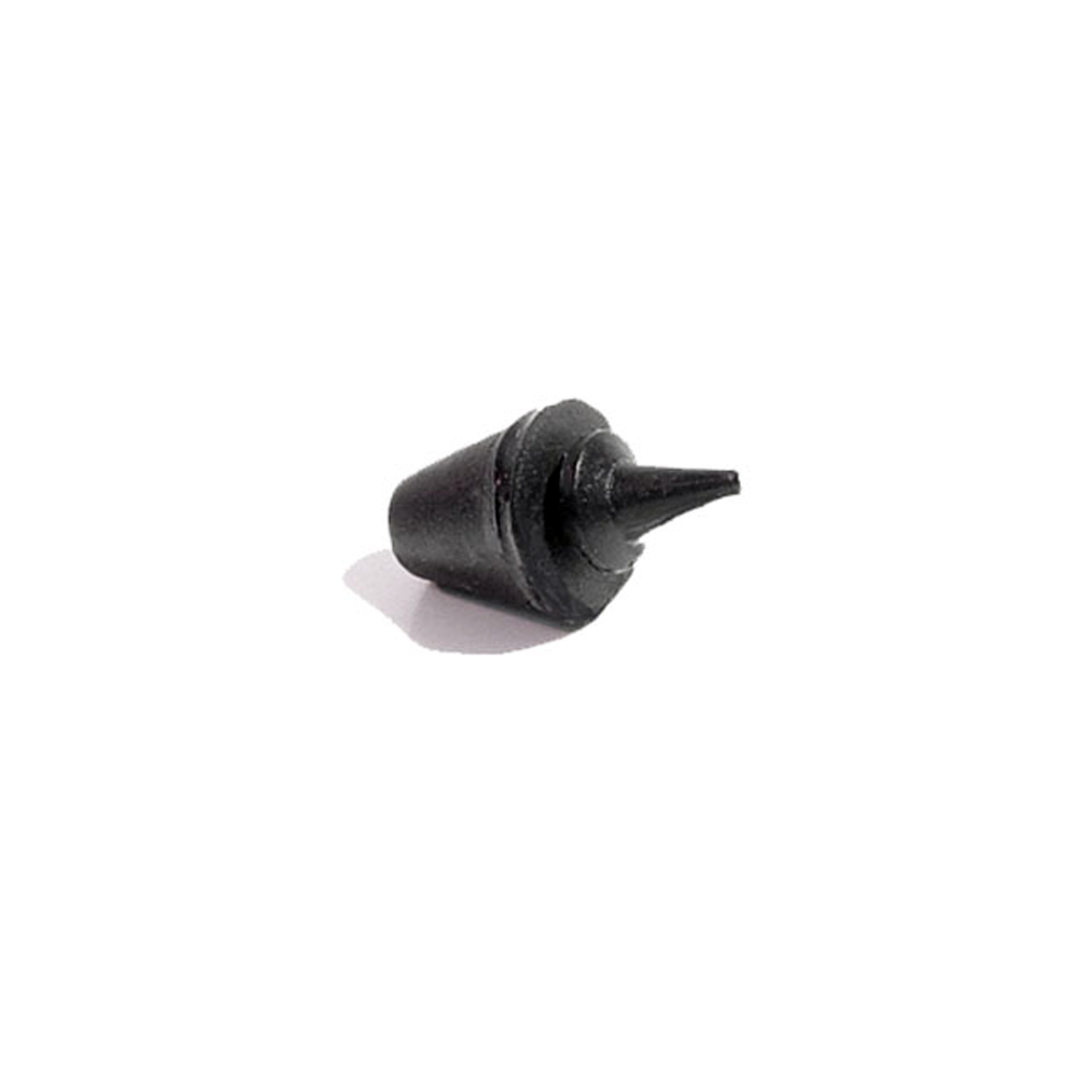 1948 Willys Station Wagon Glove Box Bumper. Each-SB 83Glove Box Bumper. Each
1948 Willys Station Wagon Glove Box Bumper. Each-SB 83Glove Box Bumper. Each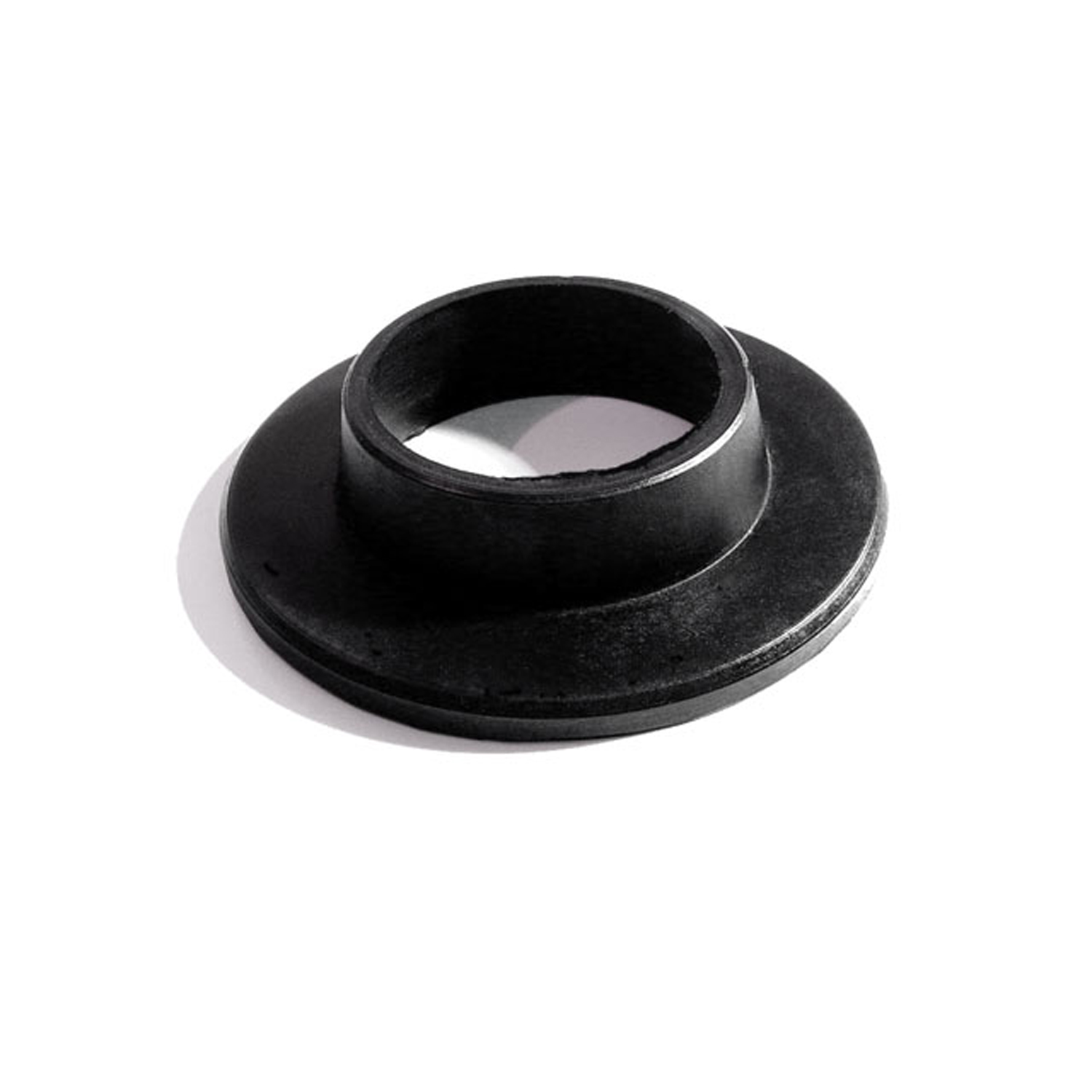 1948 Willys Station Wagon Steering Column Grommet-SC 13Steering Column Grommet. For 4-Wheel Drive Station Wagon Only. Each
1948 Willys Station Wagon Steering Column Grommet-SC 13Steering Column Grommet. For 4-Wheel Drive Station Wagon Only. Each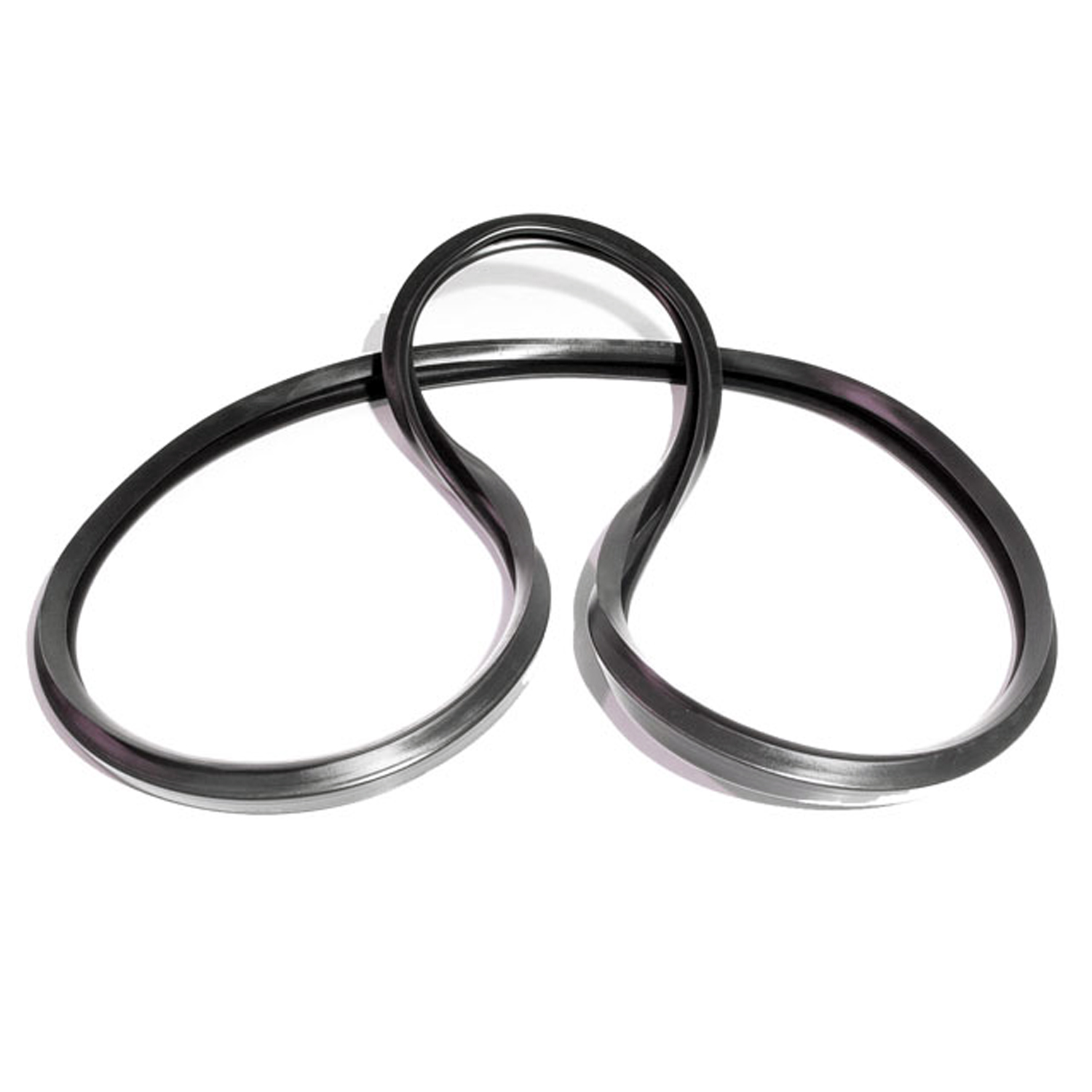 1948 Willys Station Wagon Vulcanized Side Front-Rear Sliding Window Seal-VQT 9600Vulcanized Side Front-Rear Sliding Window Seal. Made into one piece for easy installation. Order 2 to do both sides. Replaces OEM #671419. Each
1948 Willys Station Wagon Vulcanized Side Front-Rear Sliding Window Seal-VQT 9600Vulcanized Side Front-Rear Sliding Window Seal. Made into one piece for easy installation. Order 2 to do both sides. Replaces OEM #671419. Each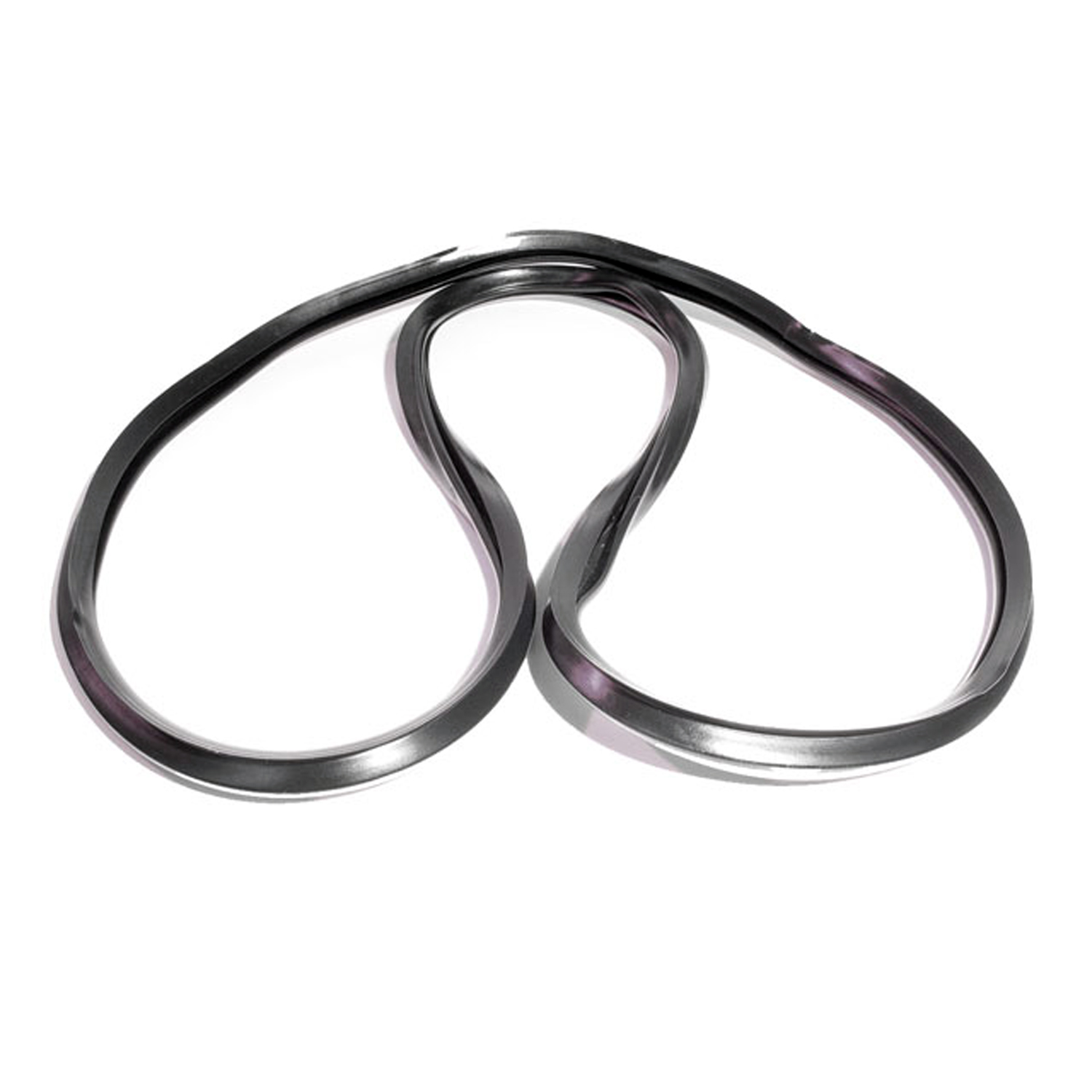 1948 Willys Station Wagon Vulcanized Side Rear-Rear Sliding Window Seal-VQT 9601Vulcanized Side Rear-Rear Sliding Window Seal. Made into one piece for easy installation. Order 2 to do both sides. Replaces OEM #664257. Each
1948 Willys Station Wagon Vulcanized Side Rear-Rear Sliding Window Seal-VQT 9601Vulcanized Side Rear-Rear Sliding Window Seal. Made into one piece for easy installation. Order 2 to do both sides. Replaces OEM #664257. Each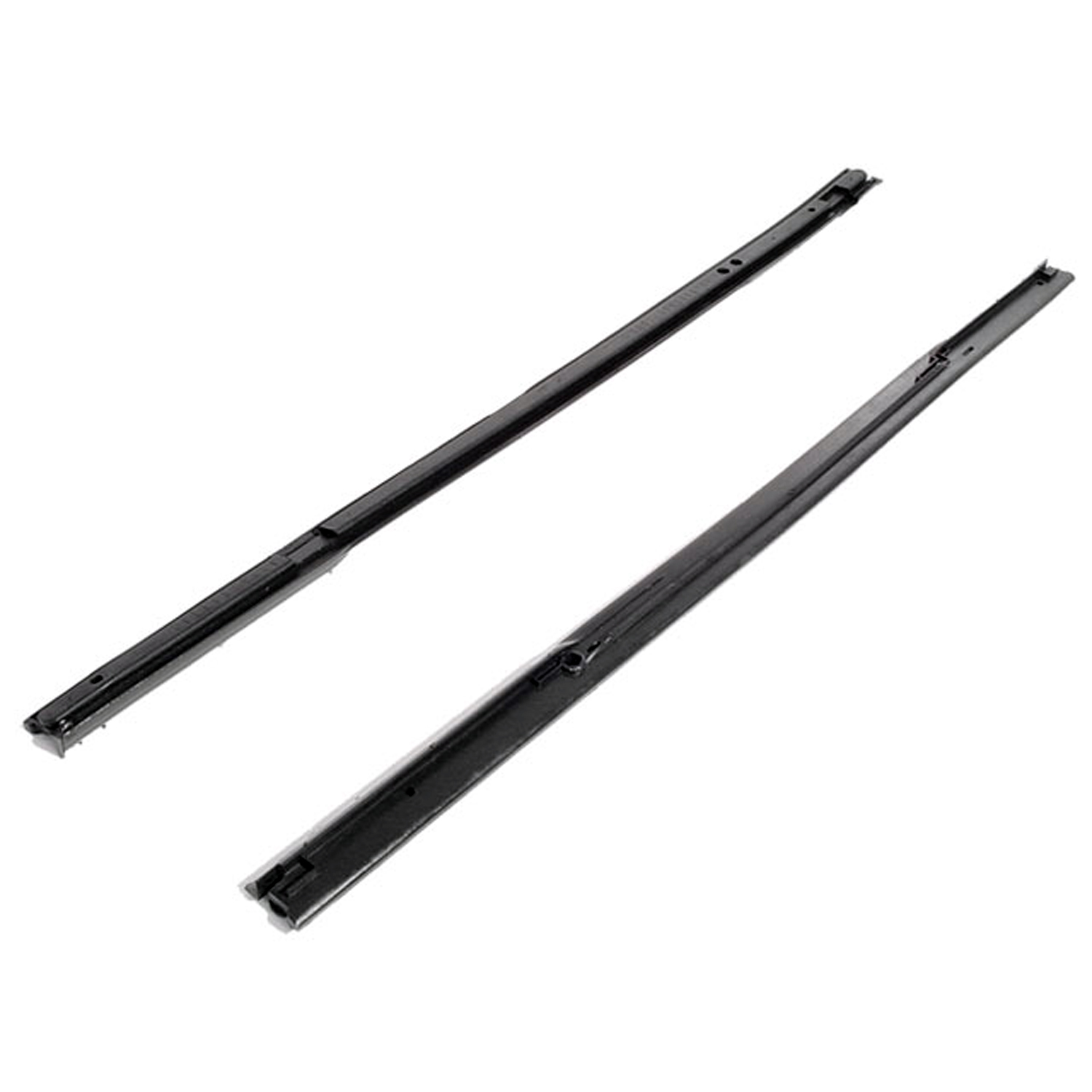 1948 Willys Station Wagon Front Vent Window Seals. For Trucks and Station Wagons-WR 9601Front Vent Window Seals. For Trucks and Station Wagons. Pair
1948 Willys Station Wagon Front Vent Window Seals. For Trucks and Station Wagons-WR 9601Front Vent Window Seals. For Trucks and Station Wagons. PairWhy Choose Metro?
For over 100 years, Metro Moulded Parts has been the pinnacle of quality in classic car restoration parts. Our commitment to precision and authenticity in every component ensures a perfect fit and an OEM-level appearance.
- Expert Craftsmanship & Quality: Each part is a testament to our dedication to reliability and perfection, crafted from original designs and thoroughly tested.
- Advanced Technology: We use cutting-edge techniques to create flawless, long-lasting parts that surpass others in performance.
- SuperSoft Sponge – The Ultimate Door Seal: Not only are our door seals 30% softer than competitors', but they're also guaranteed to never leak. They effectively reduce wind and road noise, enhancing your classic car's comfort and driving experience.
- Proudly American: Our parts are a product of American craftsmanship, made in the USA with a spirit of excellence and heritage.
- Unrivaled Warranty: We back our products with a 30-year industry-leading warranty, a testament to our confidence in their quality.
Join us in preserving the legacy of classic cars with parts that are crafted for perfection, not just made.

